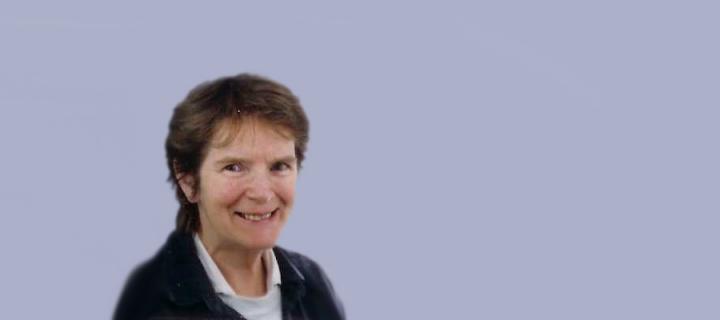Christa Hook
From South Africa to Somalia and hospital wards to war zones, Dr Christa Hook's global career can be described as a spiral.
| Name |
Christa Hook |
| Degree |
MBChB |
| Year of Graduation | 1966 |

Your time at the University
A few years ago, crossing Teviot Place to give a talk in the old Medical School building, I recalled the happiness and pride I had felt - a full fifty years before - approaching the same building as a first year medical student.
I remember looking round at my fellow students in those first days, and the pleasure at being part of such an international community. I also remember feeling privileged at being one of the small percentage of women admitted. Now I wonder why I was not enraged that our numbers were artificially limited solely by gender.
During the six years of undergraduate life, I discovered that I enjoyed many aspects of medicine in a way that I had not anticipated. I found paediatrics fascinating, turning squally messy bundles of humanity into endlessly puzzling and wonderfully rewarding individuals. Public Health had sounded boring until we were offered eye-opening opportunities to go down a coal mine, and visit a sewage plant. And we could choose tutorials in Public Health issues of international importance, where we were able to benefit from the insights and experience of students from Asia and Africa.
I was disappointed to be turned down for an exchange programme with a medical school in Nigeria. But happy that such a scheme existed. This was before electives took students to parts of the world other than the USA.
Tell us about your experiences since leaving the University
I would describe my career path as a spiral. The goal had always been to work overseas, and early on I had the opportunity to spend a few years in a mission hospital in Zululand in South Africa, then still under apartheid. It was a great way to start to learn my trade, facing conditions I had never seen before, such as snake bite and neonatal tetanus. But the huge number of malnourished children and the dominance of infectious disease vividly demonstrated the role of political and economic conditions in the causes of ill-health and in the medical response.
Back in the UK while my children were at secondary school, the spiral took me through work in medical support for overseas missions, community health and a belated training in General Practice, which took me back to being a (very) junior hospital doctor, twenty years on from the first time round. It was a very different and salutary experience!
Then came the chance to work overseas again, this time with organisations working mainly bringing humanitarian aid in crisis situations. My fiftieth birthday was spent sheltering from gunfire in Mogadishu, but a wonderful team of Irish volunteers kept us calm and focused, and brought therapeutic feeding and health care to many of the thousands of displaced and starving people – people who showed wonderful resilience in the face of terrible circumstances .
Later I chose to work with Médecins Sans Frontières (MSF), having seen the quality and relevance of the medical work the organisation brings to chaotic conflict situations. Managing cholera epidemics in such diverse places as Zaire (now the Democratic Republic of the Congo) and Afghanistan requires the application of sound research, and the availability of massive logistical capacity. Working in the former Soviet Union tests the ability to understand different disease models and to try to find common ground. Addressing HIV and tuberculosis in contexts as far apart as Ethiopia and Ukraine is challenging both medically and sociologically, and does not always result in the hoped-for outcomes.
As a Health Adviser in the Amsterdam office of MSF, I took up the issue of malaria, looking at why the then current treatments were failing. We researched resistance to antimalarials, and worked with the World Health Organization (WHO) and national control programmes in endemic countries to introduce the new effective treatments based on artemisinin. Diagnosis using only microscopy was also difficult and time-consuming and the use of the new rapid tests was introduced in cooperation with scientists and manufacturers. This meant that many more health workers could make an accurate diagnosis and effectively treat the millions of cases, especially in children and pregnant women for whom malaria is too often fatal.
So the results of field research, contextual knowledge of different countries and socio-economic systems, and an understanding of the restraints experienced by dedicated workers in conflict and resource–poor circumstances, came together with the sound clinical and public health foundation gained from my time Edinburgh.
And I have never once, for a moment, regretted my choice of career.
So the results of field research, contextual knowledge of different countries and socio-economic systems, and an understanding of the restraints experienced by dedicated workers in conflict and resource–poor circumstances, came together with the sound clinical and public health foundation gained from my time Edinburgh.
Alumni wisdom
Are you really happy and excited by what you are studying and the people you are with?
If not, maybe do something else.

